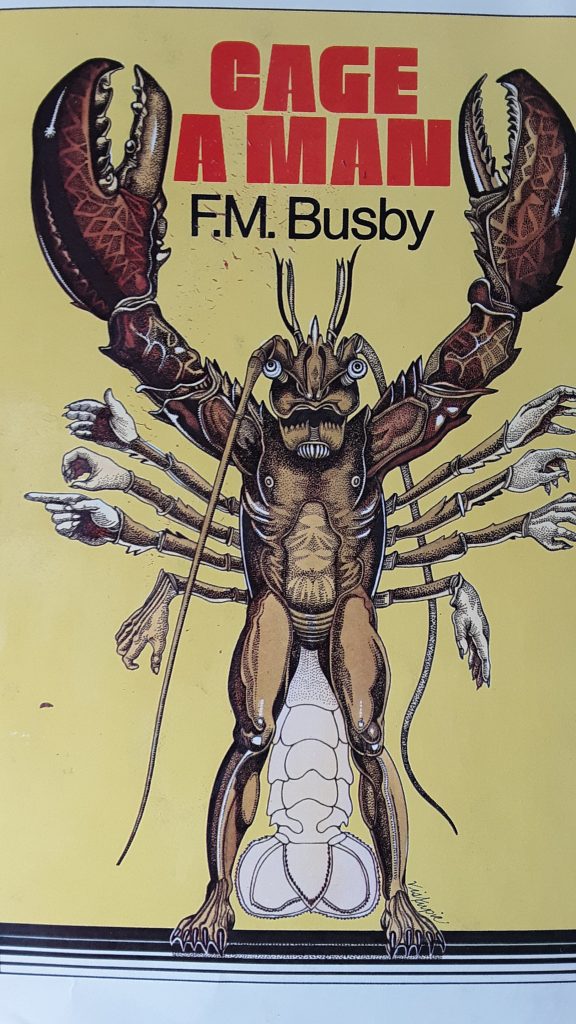By: F. M. Busby

This was $4.99 at the local thrift store. I bought it purely for its killer cover and the pulpy description on the back and inside jacket. What I got for my money was a 1st edition from an author I knew nothing about. It turns out F. M. Busby wrote several pulp science fiction books, won a Hugo Award for Best Fanzine, was president of Vice President of Science Fiction and Fantasy Writers of America, and had Robert Heinlein’s book The Cat Who Walks Through Walls, dedicated to him according to Wikipedia.
At first it was painful to read. Prior to researching the book’s context, I thought it must have been self published and desperately needed the help of an editor with a red pen. The premise seemed interesting, and the graphic violence and honesty were refreshing, the scenes all seemed rushed and unfinished. The characters seemed flat and in the beginning it made me wonder where this was heading and weather or not I should even finish reading it. The language was easy and the pages few, so I decided to soldier on. I thought to myself, if nothing else, this might be the thing that gives me confidence to write my own science fiction story. And so I finished it in just a few days of occasional reading.
It is pulpy, yes. but that is not necessarily bad. I love Phillip K. Dick who is also pulpy. This is not on the same level as Dick, but it does explore some interesting issues. The main character, Barton is wakes up confused and disoriented in some kind of prison. He finds out he has been abducted by Lobster like aliens who torture, experiment upon, and otherwise mistreat him and members of other alien races. He escapes in a rampage of violence and takes with him two lobsters plus two humans and another alien who have all been physically altered to appear more lobster-like. It explores the effects of confinement, what we now call PTSD, and psychological effects of physical mutilation.
I have read some other reviews and many have said that they where interested in the premise, but their interest waned after the main Barton’s ‘too easy’ escape. I had the opposite reaction. I tolerated the book for the majority of the read, but found the ending to be quite good. Barton spends his post escape in a sense taking care of other people, but ignoring the true effects his confinement and escape have had on him. In the end he is forced to confront his own demons and this is the point I felt the Character to be most real.